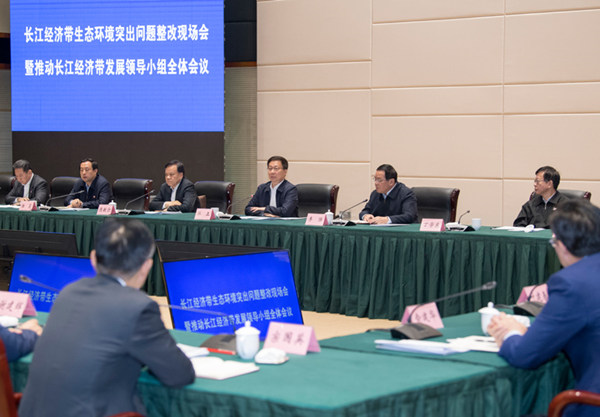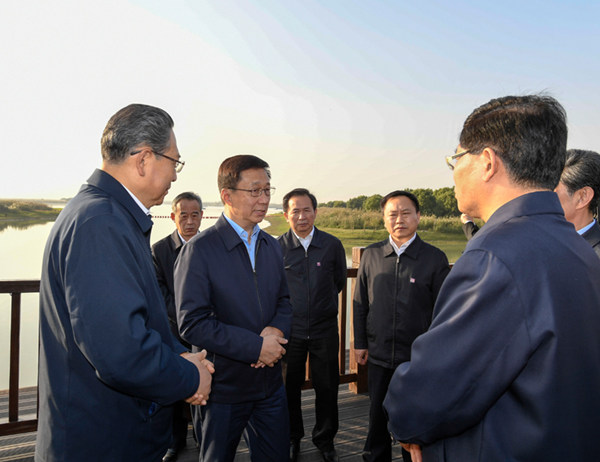
HEFEI — Vice-Premier Han Zheng stressed rectification of prominent environmental problems in the Yangtze River Economic Belt, calling for quality growth in the region on Nov 12.
He made the remarks at a meeting during his research tour in the city of Ma'anshan in East China's Anhui province.
At the meeting, an investigative documentary was played, revealing environmental problems in the Yangtze River Economic Belt. Officials from 11 provinces and municipalities in the economic belt and a number of relevant government departments reported on the problems exposed in the documentary.
Remarkable progress has been made in rectifying and improving outstanding environmental problems in the Yangtze River Economic Belt, but the situation is still grim and there is a long way to go in achieving quality growth in the region, Han said.
Some local governments are not fully aware of the importance of high-quality development and their ability to promote high-quality development needs to be improved, he warned.
"By firmly grasping the requirements for promoting high-quality development, we should stick to the path of giving priority to ecology and green development and make new progress in jointly catching up on the protection of the Yangtze River Economic Belt," said Han.
More should be done to adhere to a problem-oriented approach and constantly identify and solve problems, he said, calling for severe punishments for those engaging in the illegal destruction of the Yangtze River environment.

On Nov 11, Han went to Xuejiawa in Ma'anshan to check the progress in banning illegal piers and controlling pollution from enterprises. He also visited a wetland park to examine the local environment and water quality.
More efforts should be made to adhere to scientific and accurate management and promote the protection and restoration of the ecology and environment of the Yangtze River to gradually restore its biodiversity, he said.
China earlier this year unveiled an action plan to protect and restore the Yangtze River with goals including eliminating more than 90 percent of "black and odorous" water bodies in cities at or above the prefectural level in the Yangtze River Economic Belt by the end of 2020.
The Yangtze River Economic Belt consists of nine provinces and two municipalities that cover roughly one-fifth of China. It has a population of 600 million and generates more than 40 percent of the country's GDP.